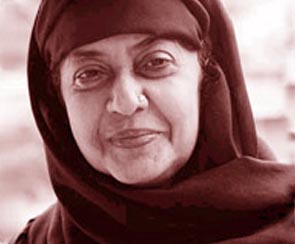About Author- Louis Fischer (29 February 1896 – 15 January 1970) was a Jewish-American journalist. Among his works were a contribution to the ex-Communist treatise. The God that Failed (1949), a Life of Mahatma Gandhi (1950), basis for the Academy Award-winning film Gandhi (1982), as well as a Life of Lenin, which won the 1965 National Book Award in History and Biography. Some of the work by the writer Gandhi & Stalin. (1947), The God that Failed (contribution) (1949), The Life of Mahatma Gandhi (1950), Stalin (1952) and The Essential Gandhi (editor) (1962).
Summary of Indigo by Louis Fischer
When Louis Fischer first met Gandhi in 1942 at his ashram in Sevagram, he told him how and why he decided to disobey the British in 1917. Gandhi had gone to the December 1916 annual convention of the Indian National Congress in Lucknow where he made a poor peasant named Rajkumar Shukla who pleaded Gandhi to visit Champaran. Under an old agreement the peasants of the Champaran district were sharecroppers. Rajkumar Shukla was one of them who was determined enough to accompany Gandhi everywhere till he fixed a date to visit his district. Impressed by the resolution of the peasant, Gandhi agreed to meet him in Calcutta and go with him to Champaran from there.
After a few months when Gandhi went to Calcutta, Shukla met him there and took him to Patna with him. There Shukla took him to meet with a lawyer named Rajendra Prasad who later became the President of the Congress Party and of India. Rajendra Prasad was not there to welcome him but the servants recognized Shukla as a sharecropper who needed help and let him inside the house with Gandhi who was also considered another peasant. However, Gandhi was not allowed to draw water from the well as they thought that he might turn out to be an untouchable.
Gandhi decided to go to Muzzafarpur to gather more information about the condition of the peasants in Champaran. He sent a telegram to Professor J.B. Kripalani, of the Arts College in Muzzafarpur. When Gandhi reached the station, Kripalani was waiting with a large number of students. Gandhi stayed with Professor Malkani for two days and appreciated him for being courageous enough to harbour a person like him who was fighting for the country’s freedom, in spite of being a government official.
The news of Gandhi’s advent and his mission spread rapidly through Muzzafarpur and Champaran. Gandhi came to know that the lawyers were charging a fee from the peasants. Gandhi advised them against taking their cases to the law court as he felt that all that was needed was to make them feel liberated from fear.
Most of the arable lands in the Champaran district were divided into estates owned by Englishmen who employed Indian tenants to work for them. The peasants were forced to be a part of a long-term contract to plant fifteen percent of their land with indigo. When the landlords got to know that Germany had developed synthetic indigo, they compelled the sharecroppers to pay them compensation for being released from the 15 percent agreement. When the sharecroppers protested against this injustice and hired lawyers to fight for them, the landlords hired thugs. Meanwhile, the news of the synthetic indigo reached the illiterate peasants who had already signed and wanted their money back.
Gandhi had arrived to Champaran at this point of time and he decided to get his facts right before proceeding to do anything. He visited the secretary of the British landlord’s association who refused to give information to an outsider, to which Gandhi replied that he was no outsider. Next, he called the British official commissioner of the Tirhut division who advised Gandhi to leave Tirhut immediately.
Gandhi proceeded to Motihari with several lawyers where he was greeted by a vast crowd and found out that a peasant had been maltreated. He decided to pay and visit. On his way he was stopped by the police superintendent’s messenger who warned him to leave the town. The messenger served Gandhi an official notice to quit Champaran immediately. Gandhi signed a receipt for the notice and wrote on it that he would disobey the order. He was summoned to court the next day. That night Gandhi telegraphed Rajendra Prasad to come from Bihar with influential friends, sent instructions to the ashram and forwarded a full report to the viceroy.
In the morning, Motihari was swarming with peasants. They had only heard that some Mahatma who wanted to help them, was in trouble with the British authorities. This spontaneous courage to support Gandhi and to stand up against the British marked the beginning of their freedom from their fear of the British.
The officials were unable to handle the crowd without Gandhi’s cooperation. Perplexed by this incident that served as a proof that the British would be challenged by the Indians, the prosecutor requested the judge to postpone the trial. But Gandhi protested against the delay and read a statement pleading guilty. He was in a conflicting state of being. On one hand, he did not want to set a bad example as a lawbreaker and on the other hand, he had to follow his conscience to stand up for his people. The magistrate asked Gandhi to furnish bail for 120 minutes during the recess but Gandhi refused. Finally the judge released him without bail.
Rajendra Prasad, Brij Kishor Babu, Maulana Mazhatul Huq and other prominant lawyers had arrived from Bihar. Gandhu demanded that the lawyers should fight against the injustice if he went to jail. They thought that if a stranger like Gandhi was prepared to go to jail for the peasants then it would be a shame if they did not contribute their bit. Finally, they assured Gandhi that they were ready to follow him to jail. The unity and courage of the people to stand up against the British made Gandhi exclaim- “The battle of Champaran is won.”
Several days later, Gandhi learnt from the magistrate that the case against him was ordered to be dropped. For this first time, civil disobedience had triumphed in modern India.
Gandhi delved deep into the enquiry and collected relevant documents from the peasants which led the landlords to protest violently.
In June, Gandhi had four interviews with the Lieutenant Governor. The appointed commission consisted of landlords, government officials and Gandhi, as the only representative of the sharecroppers.
Finally, the committee agreed to reimburse the peasants as a mountain of evidence was gathered against the planters. Everyone thought that Gandhi would ask for the full refund but to everyone’s surprise, he only asked for 50 percent of the money that the landlord’s had illegally taken from the peasants. However, he finally settled for only 25 percent. Gandhi felt that the money was less important than the fact that the landlords had to submit to the peasants. They had to surrender their self-esteem. Also, the peasants realized their rights and became more courageous to stand up against injustice.
Within a few years, the British planters left their estates as a result of which indigo sharecropping disappeared. Gandhi saw the cultural and social backwardness in Champaran and felt like doing something for its upliftment. He requested twelve teachers to teach the people at Champaran. Two young disciples of Gandhi, Mahadev Desai and Narhari Parikh and their wives volunteered for the work. Gandhi’s youngest son, Devadas and his wife also joined in. Kasturbai educated the village about ashram rules on personal cleanliness and community sanitation.
Gandhi got a doctor to serve the community for six months. Castor oil, quinine and sulphur ointment were available. Gandhi maintained communication with the ashram and sent regular instructions and asked for financial accounts.
The Champaran movement had a deep impact on Gandhi’s life as it made it evident that the British could not orders Indians in their own country. It was not a political agenda to begin a movement by defying the British. The Champaran movement grew out of an attempt to release the tension of the poor peasants. Politics, for Gandhi, was intertwined with the day-to-day problems of the ordinary mass. Gandhi’s attempt was to mould a self-reliant India. When Gandhi’s lawyer friends thought that it was a good idea to have the English pacifist, Charles Freer Andrews, stay in Champaran and help, Gandhi refused. He said that having an Englishman by their side in the time when every Indian should be strong and self-reliant, would just indicate the weakness of their minds. Rajendra Prasad proudly comments that Gandhi had successfully taught everyone a lesson in self-reliance.
Some online learning platforms provide certifications, while others are designed to simply grow your skills in your personal and professional life. Including Masterclass and Coursera, here are our recommendations for the best online learning platforms you can sign up for today.
The 7 Best Online Learning Platforms of 2022
- Best Overall: Coursera
- Best for Niche Topics: Udemy
- Best for Creative Fields: Skillshare
- Best for Celebrity Lessons: MasterClass
- Best for STEM: EdX
- Best for Career Building: Udacity
- Best for Data Learning: Pluralsight
















